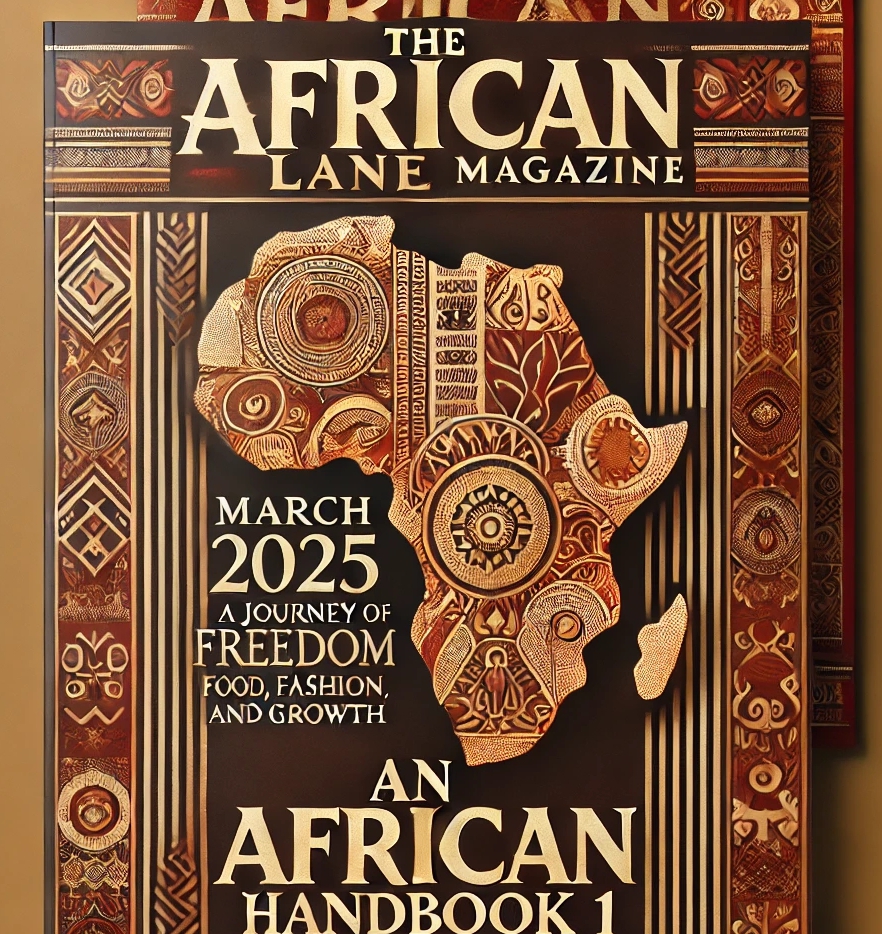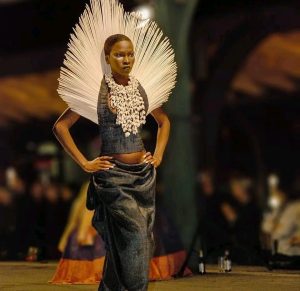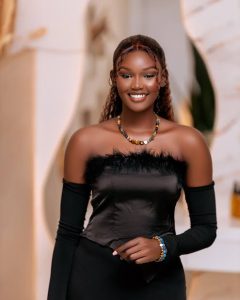How Chief Ouma Katrina is Preserving Her Mother’s Tongue
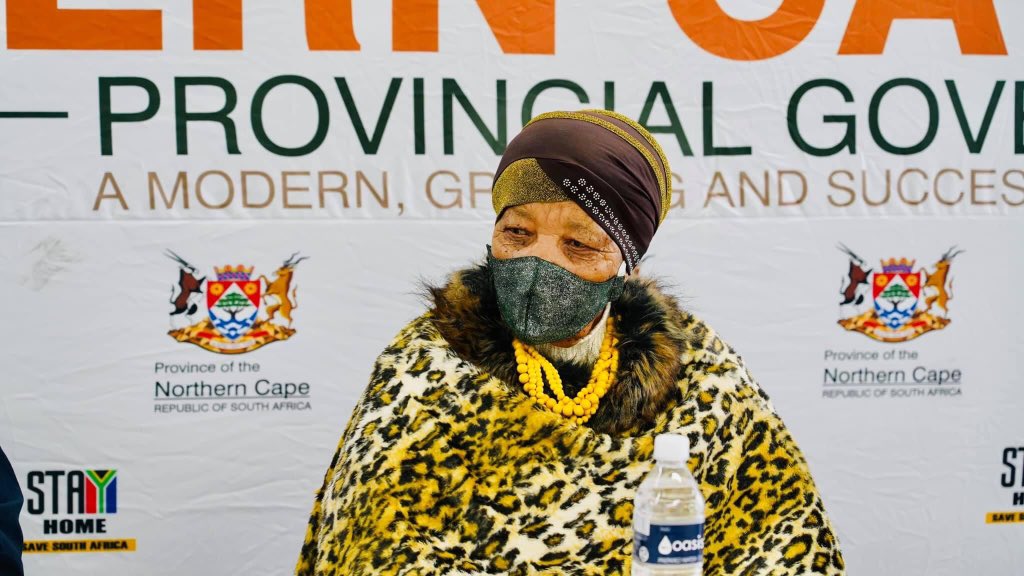
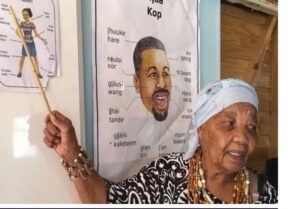
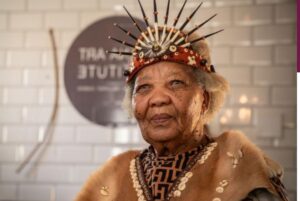 Around 20 aging speakers of the language in the Northern Cape region came out but within a few years, only Katrina Esau, who is in her late eighties, is left according to iNews.
Around 20 aging speakers of the language in the Northern Cape region came out but within a few years, only Katrina Esau, who is in her late eighties, is left according to iNews.“When I was a child, I only spoke N|uu and I heard a lot of people speaking the
language. Those were good times, we loved our language but that has changed,” says Katrina.
Katrina now mainly speaks Afrikaans, which is related to the language
spoken by the Dutch settlers who arrived in South Africa in the 17th
Century. San had lost their connection to the land with the proclamation
of the Kalahari Gemsbok National Park, and their forced removal.
By the time she was a teenager, in 1948, the advent of formal apartheid
would institutionalize racism. And the San languages, including N|uu,
were derided as “ugly” and forbidden – leading people of San heritage
to also begin rejecting them, in favour of Afrikaans.
“We would get beaten up by the white man if we were caught speaking our
language. Because of our history, people today do not want to speak the language
anymore, there is so much pain around it. We abandoned the N|uu language and
learned to speak Afrikaans, although we are not white people – that has affected our identity,” Katrina said.
With no other fluent speakers in the
world apart from Katrina, the language is recognized by the UN as “critically
endangered”. N|uu is one of three
languages known to feature a “kiss-click”
produced with both lips.
Talking about how she was able to retain
the language despite this, she said in Lost
Tongue, a film about N|uu made in 2016
“I didn’t learn this language; I sucked it out of my mother’s breast,”
I buried it at the back of my head.”
The Presidency (a website) describes Katrina Esau as a woman on a
mission to preserve the endangered culture of the San people, an
indigenous tribe mostly concentrated on the outskirts of the Northern
Cape.
This daughter of the soil has chosen to face up to the mammoth
task of teaching a largely oral language and the unique traditions of the
San people. She has decided to remain anchored to the culture but move
with modern times of technology to preserve her near-extinct
indigenous language of N|uu.
o bring back and preserve the N|uu language Katrina
established a language school,
ǂAqe ǁX’oqe – meaning “Gaze at
the Stars”
“The aim of the school is that we want to hear the language. We also
want to see it in books. We want to keep it visible. We’re doing this
because it’s a matter of the heart for us,” she says in a book about her.
Katrina teaches her pupils, aged from three to nineteen, at the front of
her house in Rosedale, outside Upington in the Northern Cape to learn
basics such as greetings, body parts, animal names and short sentences. N|uu language has 114 distinct sounds, including 45 clicks, 30 non-click
consonants and 39 vowels. On any given day, according to Thepresidency.gov.za, ‘Katrina’s house
is abuzz with activity as she teaches and transfers valuable knowledge
to the youth with the hope that the San people’s language and cultural
ways would prevail.’
According to Katrina in an interview with the BBC,
“I’m teaching the language because I don’t want it to become extinct
when we die. I want to pass on as much of it as I can but I am very
aware that we don’t have a lot of time.”
She has been running the school in her home for about 10 years. Katrina
has received many accolades for her efforts to preserve and promote her
language.
In 2014 she was honored in the Presidential National Orders
with the Order of the Baobab in Silver, she was awarded “for her
Details here
https://theafricanlane.com/wp-content/uploads/2022/07/The-African-Lane-Magazine-2nd-Edition.pdf
